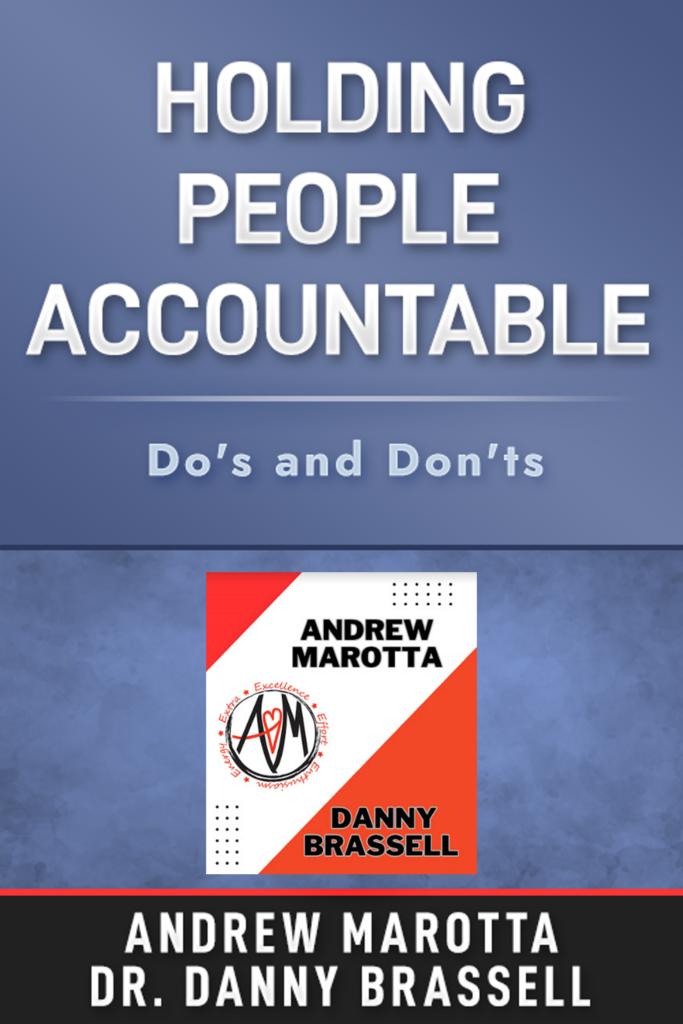Finding the right balance between guidance and authority is essential in the dynamic world of school leadership. This intricate dance of managing people, fostering growth, and maintaining accountability can often seem overwhelming. Thankfully, experienced educational leaders like Andrew Marotta and Dr. Danny Brassell shed light on effective leadership strategies, offering a beacon of wisdom for educators and school leaders alike.
The Art of Accountability
Accountability, often misconceived as a punitive term, is actually the cornerstone of effective school leadership. Andrew Marotta sums it up perfectly: “Accountability is not a bad word… it’s something that we have to do as part of our job as school leaders.” This perspective reframes accountability as an essential, positive practice rather than a punitive measure.
Let’s delve into some key aspects of accountability:
- Embracing Accountability – Understand that holding people accountable is integral to the growth and success of any educational environment.
- Timely Responses – Tackle issues as they arise; delaying action can diminish the importance of the matter at hand.
- Consistency – Ensure your approach to accountability is consistent, fostering a reliable and predictable environment for staff and students.
Leadership Isn’t One-Size-Fits-All
Dr. Danny Brassell emphasizes the significance of personalized leadership styles, stating, “Leadership is just like teaching. There’s no one specific style that is the standard.” This approach acknowledges the diversity in leadership styles and the importance of adapting to various situations and individuals.
Considering this, let’s explore how to tailor leadership styles:
- Adaptability – Tailor your leadership style to suit different situations and individuals, recognizing that flexibility can enhance effectiveness.
- Avoid Micromanagement – Trust your team’s abilities, allowing them to bring their strengths to the forefront.
Empathy and Understanding
In the realm of educational leadership, empathy plays a critical role. Andrew Marotta highlights the importance of viewing situations through the lens of others, urging leaders to “try to think about things in a positive light and treat people with grace and empathy.” This empathetic approach can transform challenging situations into opportunities for growth and understanding.

To foster empathy and understanding, consider doing the following:
- Embrace Graceful Leadership – Address issues with empathy and understanding, considering the context and circumstances of each individual case.
- Encourage Open Dialogue – Create an environment where staff and students feel comfortable sharing their perspectives and experiences.
The Power of Action Plans
Creating action plans is a strategic way to address issues and guide individuals toward improvement. Andrew Marotta advocates for this method, advising leaders to “create an action plan for success.” This not only provides a clear path forward but also demonstrates a commitment to the individual’s development.
In light of this, here are some strategies for action planning:
- Clear Objectives – Set specific, achievable goals within the action plan to guide improvement.
- Regular Follow-Ups – Monitor progress and provide ongoing support to ensure the successful implementation of the action plan.
Transparency and Communication
Dr. Brassell stresses the importance of transparency, saying, “People are much more tolerant when you’re transparent.” Clear, honest communication fosters trust and understanding within the educational community.
Emphasizing transparency, consider these points:
- Open Conversations – Be upfront about challenges and decisions, explaining the reasoning behind them.
- Inclusive Decision-Making – Involve staff and students in the decision-making process, valuing their input and perspectives.
Prepare for Leadership Success
School leadership demands a nuanced approach that balances accountability with empathy, adaptability, and transparency. As Andrew Marotta and Dr. Danny Brassell demonstrate in “Holding People Accountable: Do’s and Don’ts“, effective leadership is not about rigidly enforcing rules but about nurturing an environment of growth, understanding, and mutual respect. This session offers invaluable insights and strategies for those seeking to refine their school leadership skills and navigate the complexities of educational management.
Remember, as school leaders, our actions and decisions not only shape the present but also pave the way for future generations. Let’s embrace these lessons and continue to inspire, motivate, and lead with integrity and purpose.
Want to learn more about how you can set yourself and school leaders up for success?
Check out Responsive Learning’s School Leadership Academy.


